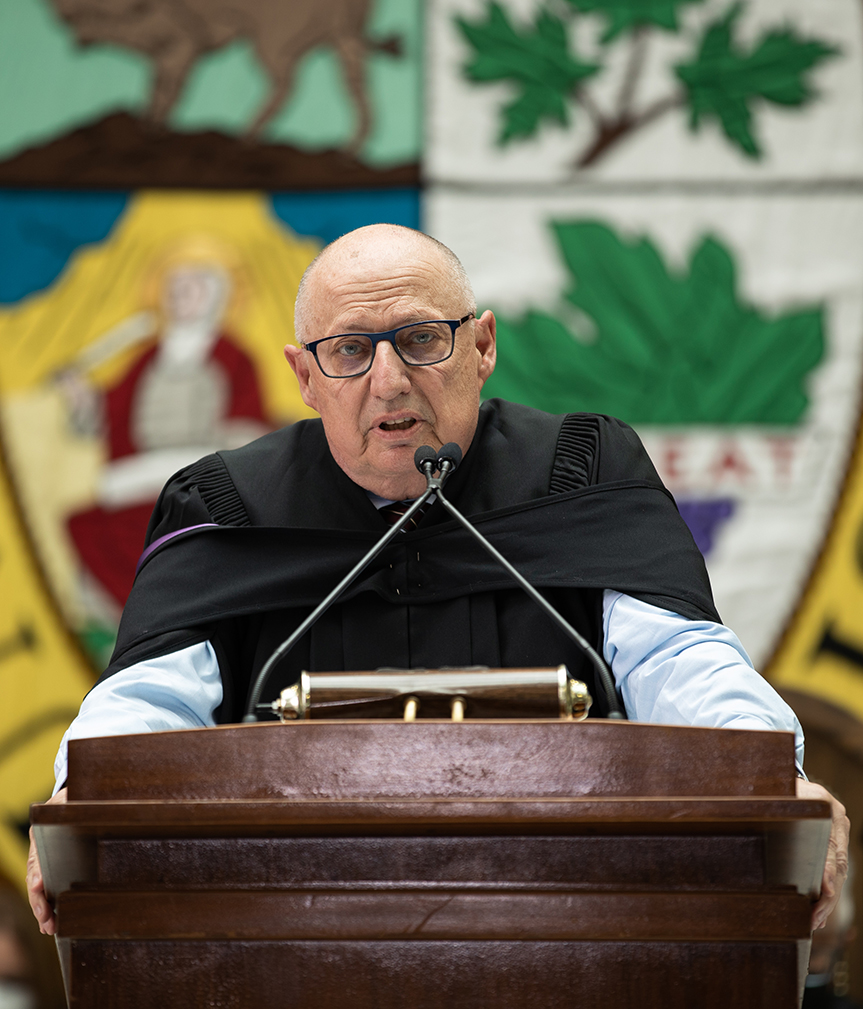
Dean Brian Postl gave his final Convocation addresses to medicine, dentistry and dental hygiene graduands on May 19, 2022:
To the medicine graduands, you’ve made it! Four years have gone by in a blink. You can rest assured you are ready for your residency. You have had terrific training, exposures and experience with exceptional teachers. You will fit in, you will be supported and you will provide excellent care.
To the dentistry and dental hygiene graduands, you have been through a very strenuous program that has the fascinating characteristics of drinking from a firehose. Like all of the health colleges, but with the additional requirements that aren’t just about studying or health systems, but about how you technically apply interventions in a way that serves patients.
As the President has said, you are also products of a COVID pandemic, the likes of which haven’t been seen for over 100 years. You’ll carry this with you for a very long time.
If you’ve learned that there’s clearly an interface be-tween health systems, public health systems and political imperatives, it’s something that you’ll carry forward for the rest of your careers because all have legitimacy, and depending on your perspective, all should’ve taken precedence.
But what you also saw and participated in was the call to action. You showed up as volunteers; you participated when people needed help – your colleagues and your college. And more importantly, you adapted remarkably to a very rapidly changing situation.
You also saw the health system step up. Frontline workers didn’t miss shifts, despite personal and family risk. They showed up and they took care of all comers. Some of our colleagues had threats issued towards them and suffered harassment. Clearly, part of our community saw freedom as a more important imperative than public health and social accountability.
We took care of everybody, as you will. Sometimes the people we took care of were the very people who were refusing vaccines or issuing threats.
It’s important to think about that because it can’t work any other way. We can’t choose who to treat. If we did, the public confidence that we enjoy would disappear.
Hopefully, you also learned that COVID affected groups differently. It was not an equal opportunity virus. It affected the elderly, Indigenous people, other members of the BIPOC community, those living in crowded conditions and those people without homes. They were more often infected, were frequently sicker, needed more ICU supports and suffered a disproportionately higher death rate.
The federal government has recently announced that they intend to expand dental services to exactly those populations. I look forward to the newest dentists and dental hygienists having an opportunity to better serve those communities and to join other health professions in doing so. One of your advantages is that you have now been through interdisciplinary education and interprofessional care and training experiences.
The question for you as new graduates is: How do you find ways to serve the populations that need us most and how do we tap each other in all the health professions to collaborate and work together to better meet the needs of the people that we serve?
Congratulations and good luck.
Brian Postl, CM, OM [MD/76]
Vice-Provost (Health Sciences) & Dean, Rady Faculty of Health Sciences, University of Manitoba
